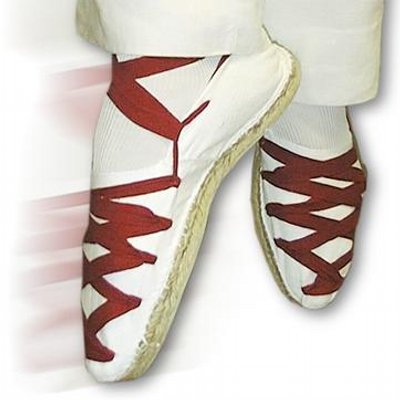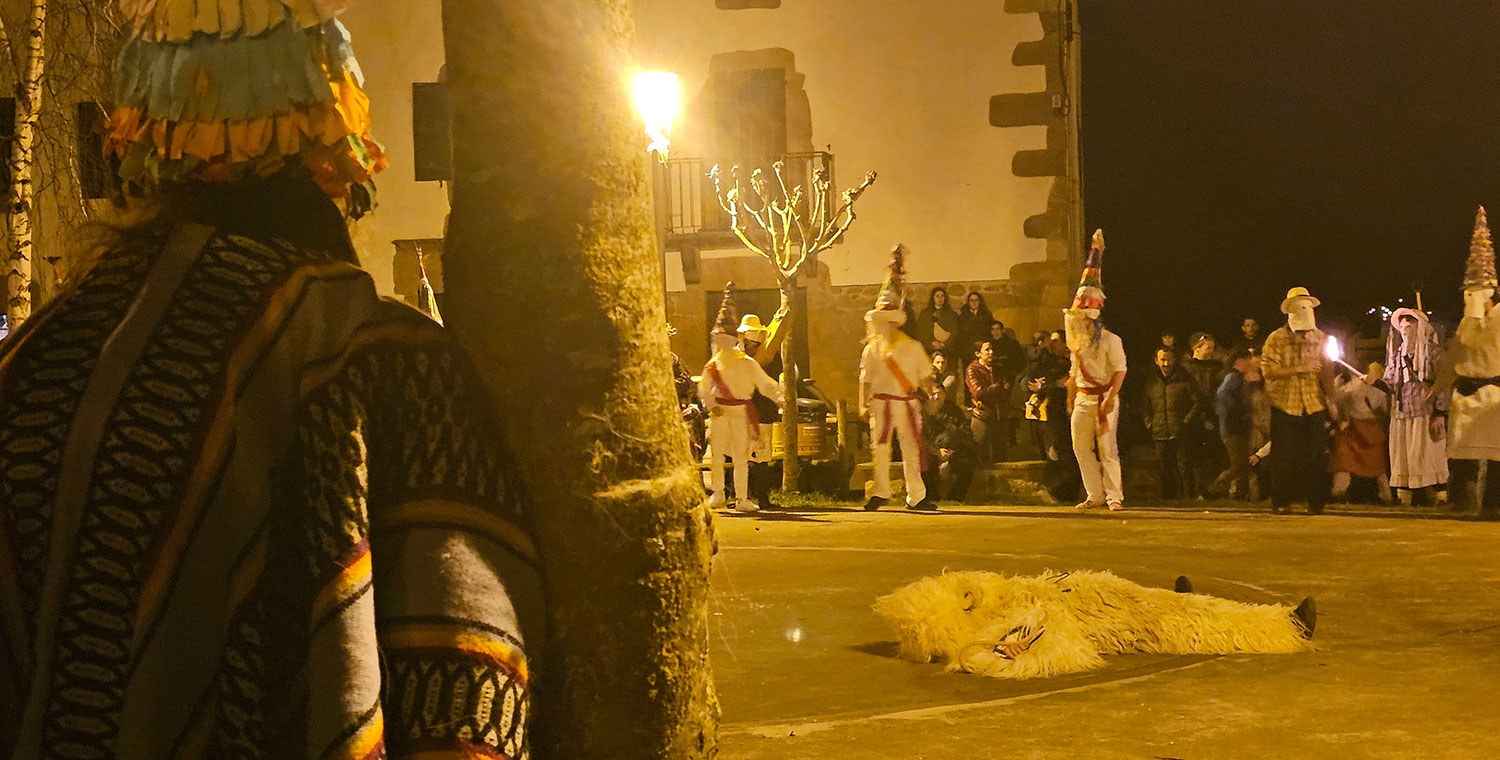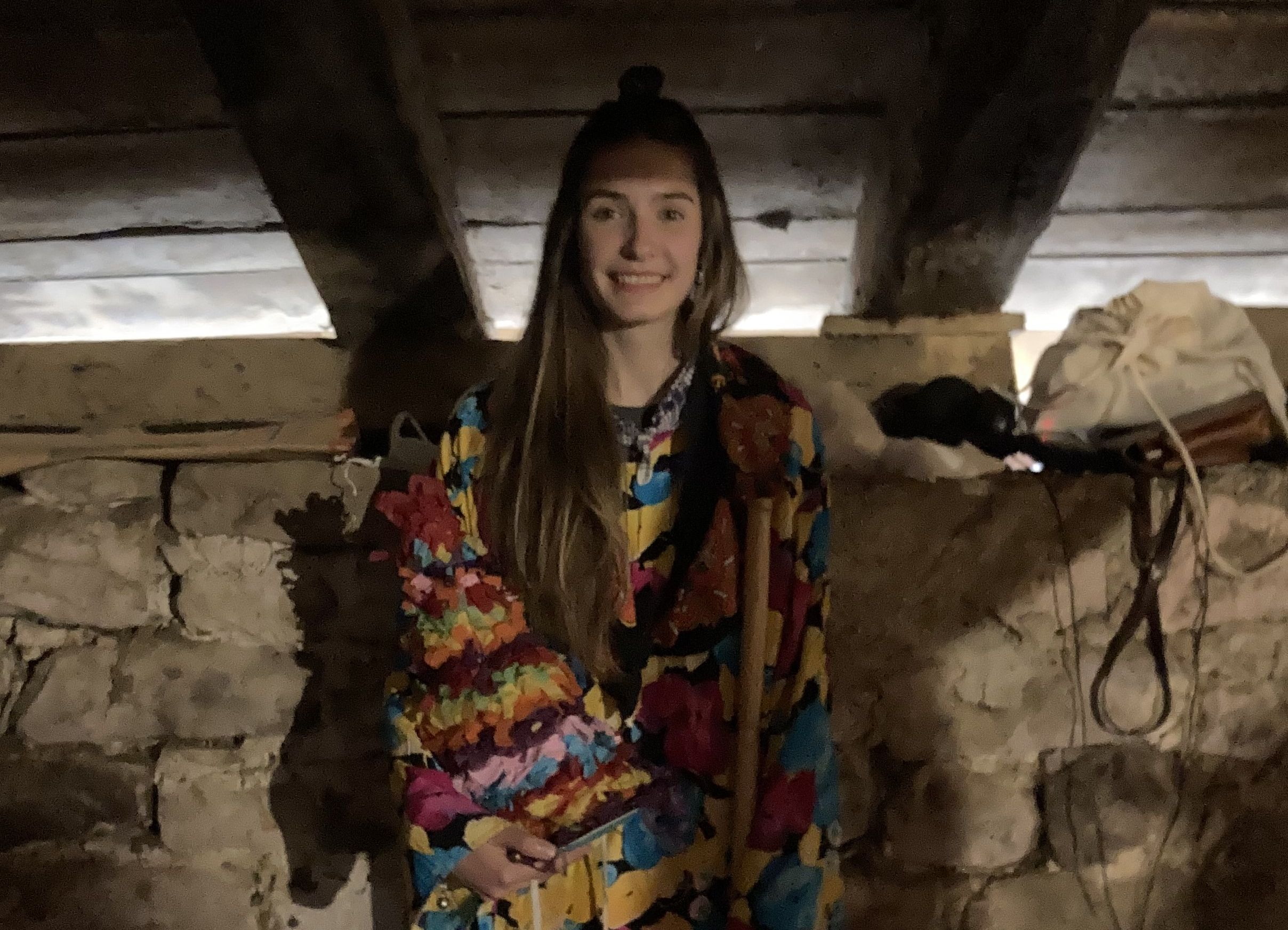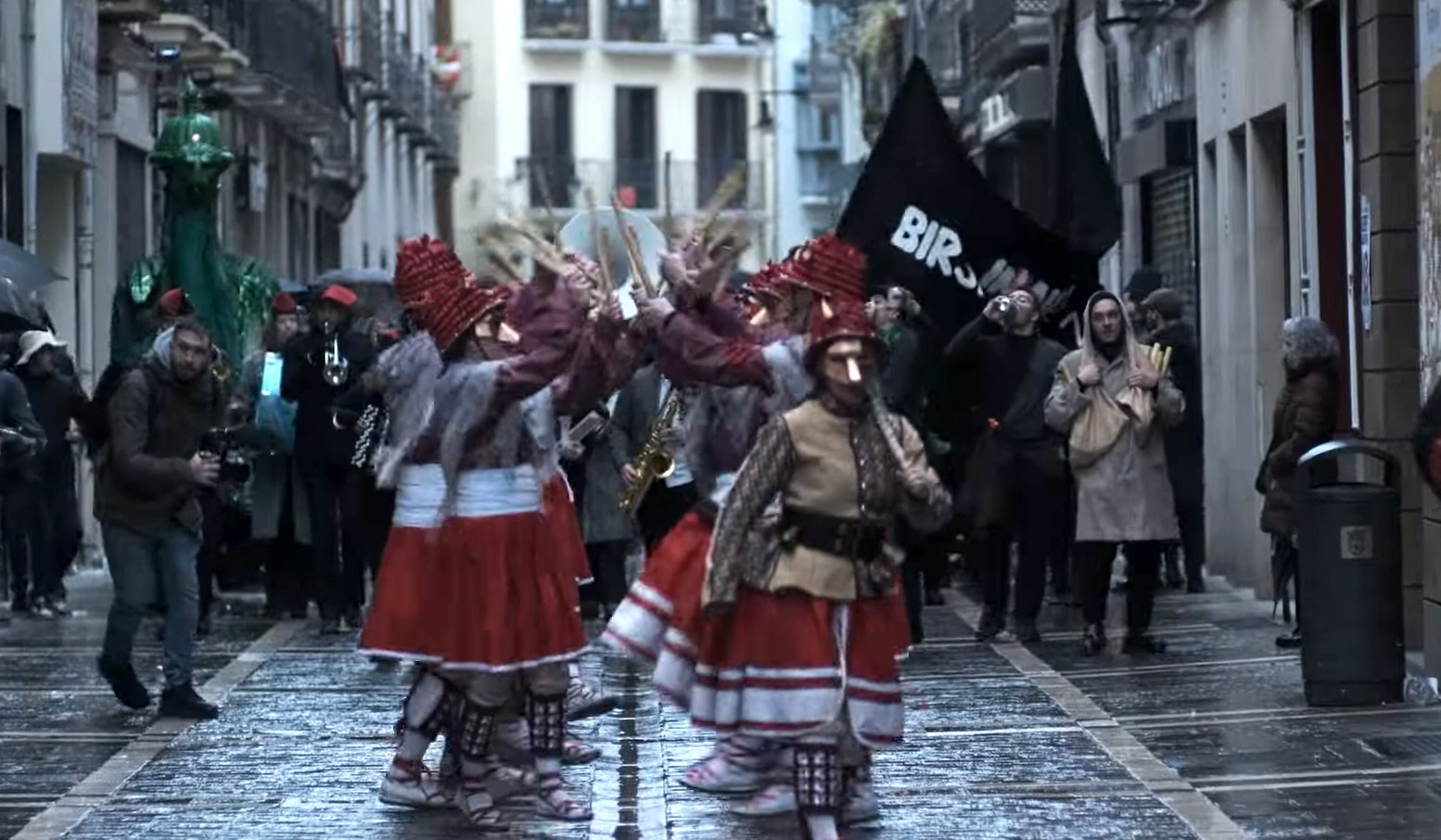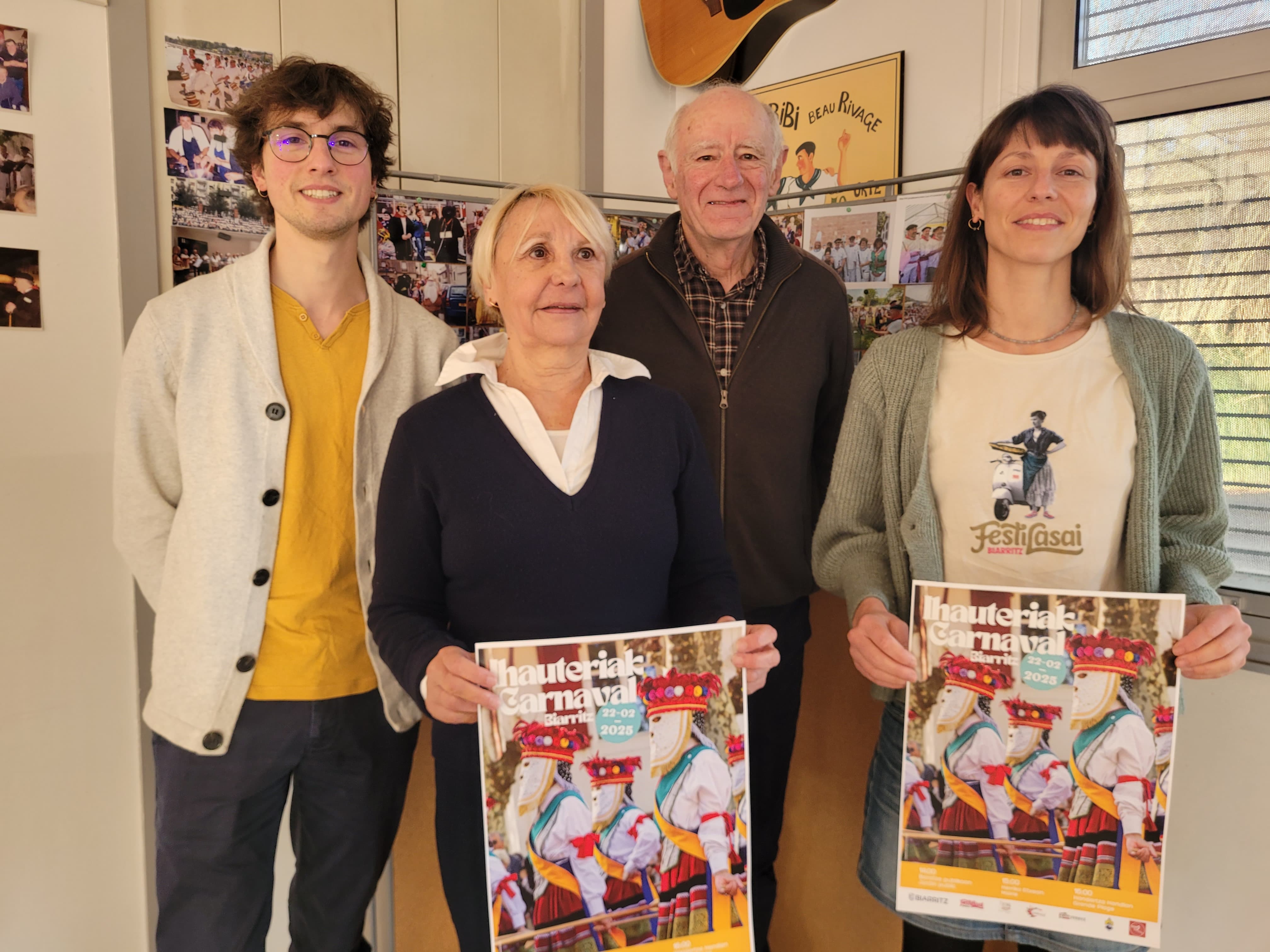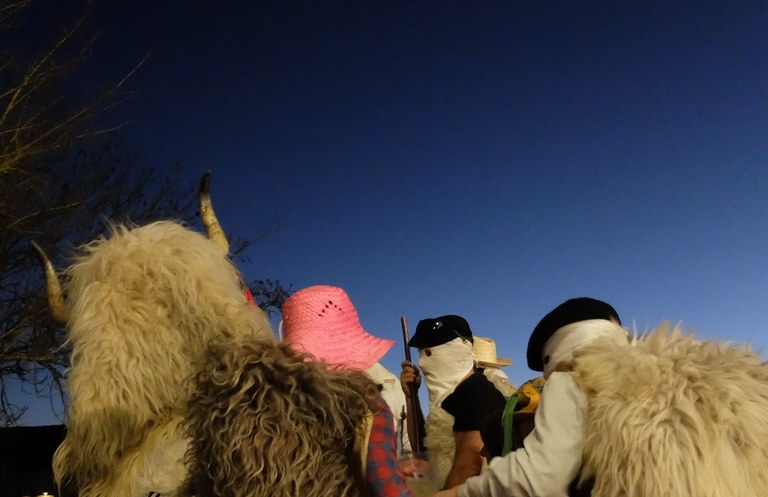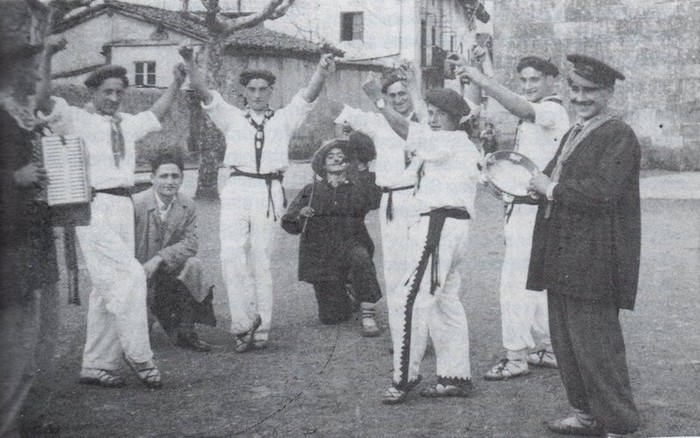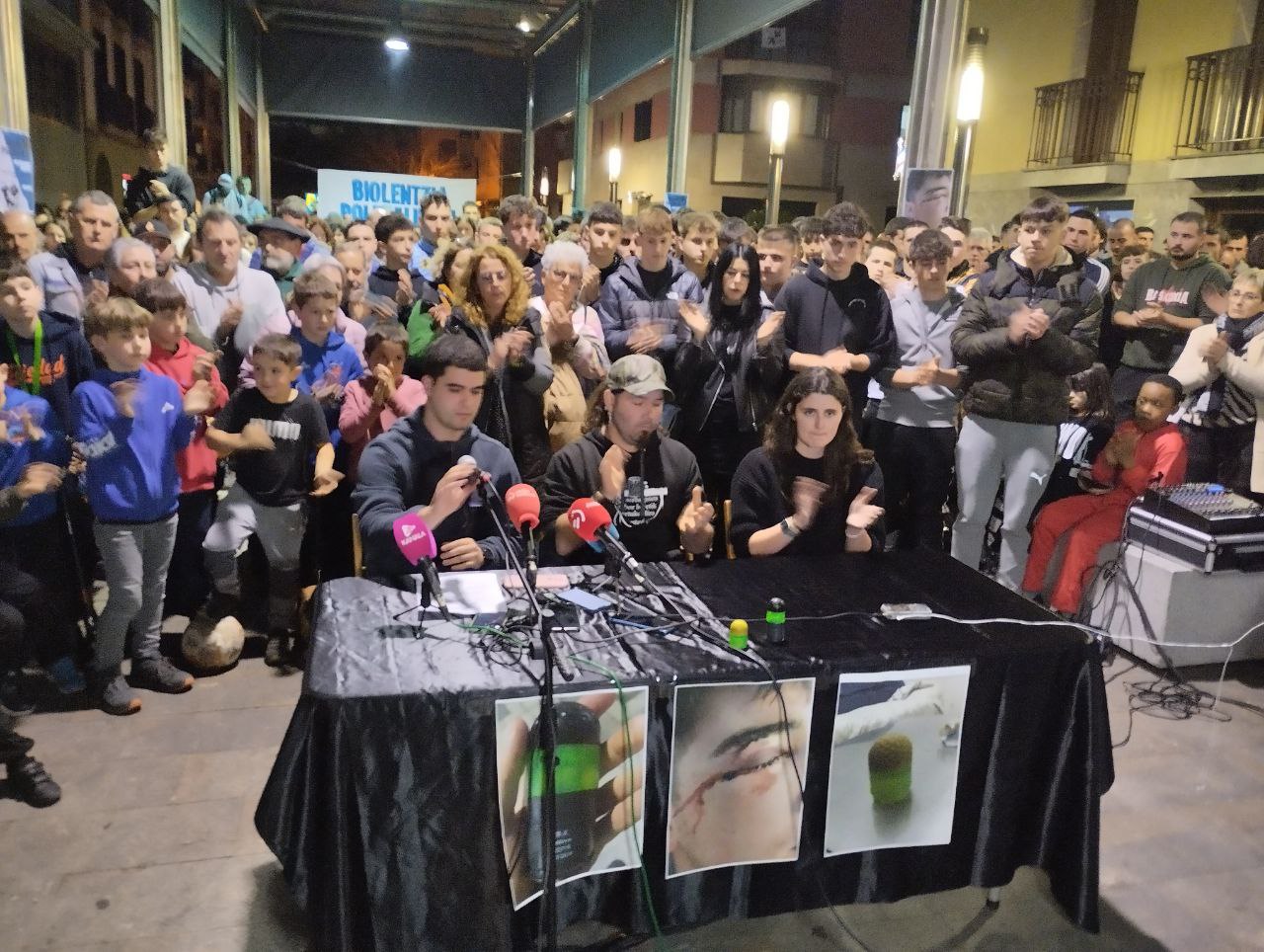Carnival cloths; party, dance and food
- Many costumes from Euskal Herria dance and sing in caserío and casa, hoping that in return they will receive something. The party is usually made on the portals. Many times the costumes enter the lobby and they do it around the table. There is no lack of food and drink in carnivals; in some cases they collect money or welcome them with breakfasts, lunches and snacks. In the bags, basket, sticks or wars are also collected products such as eggs, fruits, chickens, chorizos, chorizos...

Parties are based on relationships, both inside and outside the community; visits are also common in the festive environment. In the villages, for example, the habit of receiving heat from the visitor is still very present. One of the features of the winter holidays is the visit and the request. Applications start with All Saints Day (also on Halloween), continue with San Martin and San Nikolas and Christmas and Olentzero groups reach the end of the year. The most well-known is probably the Santa Águeda Eve season. However, with Carnival we do not associate the custom of the season, the collection of chunks or the season, but it is very common, rooted and extended, and that is what will be referred to in this introduction.
Lapurdi: kaskarotak
Next to the carnival season, the villages of Lapurdi go to the festival of the cascabels. During several weekends of January, February and March they travel through the streets and houses to ask and dance.
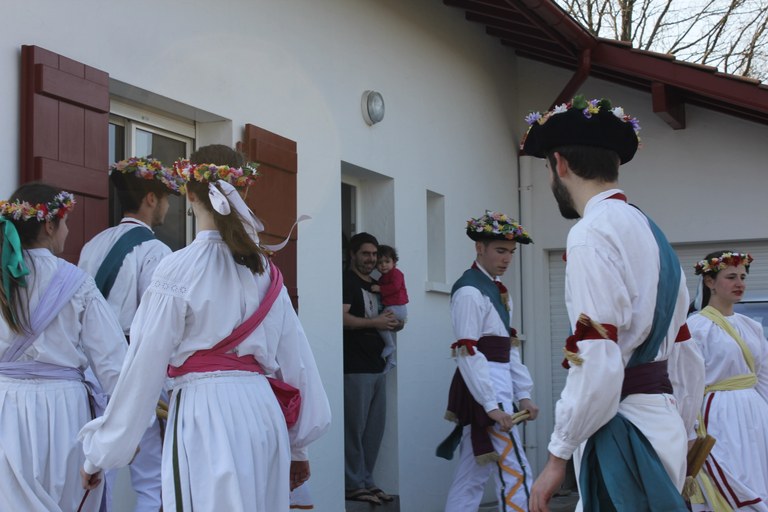
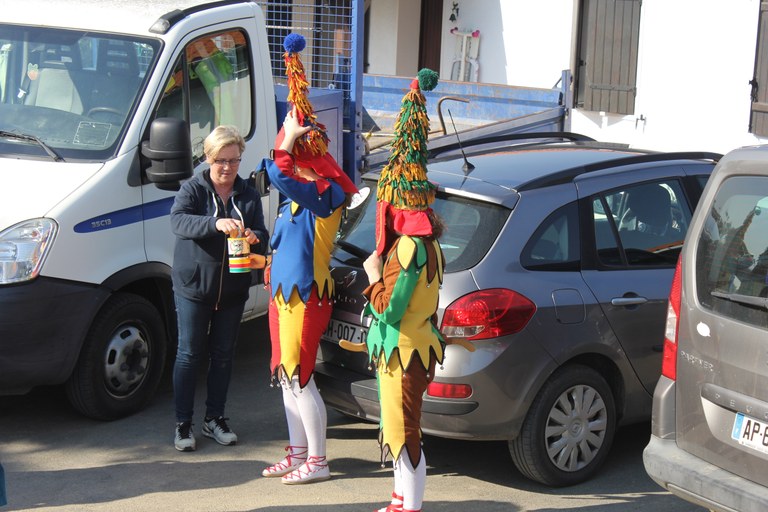
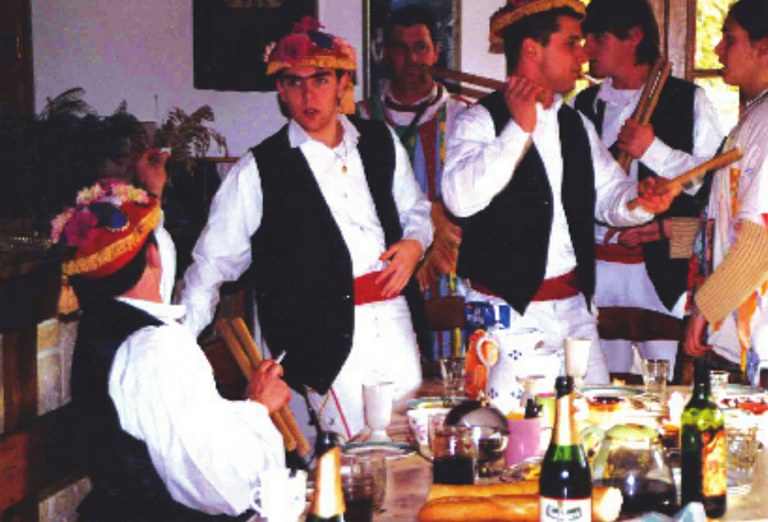
Zuberoa: masked barricades
The masks are held in Zuberoa on weekends from January to April. In the morning visits called barricades are held. Between five and six village neighbors dance, sing and disguise and receive with food and drink. Today the Arizalaris are welcomed, but at another time it is said that barricades were being placed to prevent them from entering the village, hence the name of barricada.
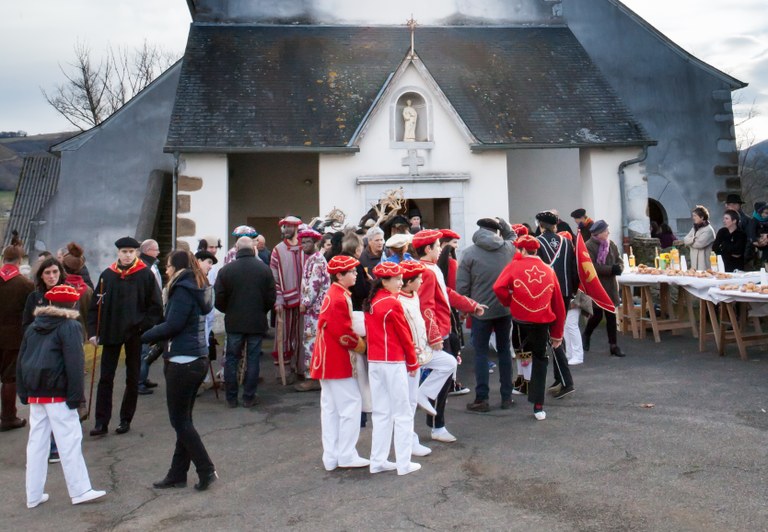
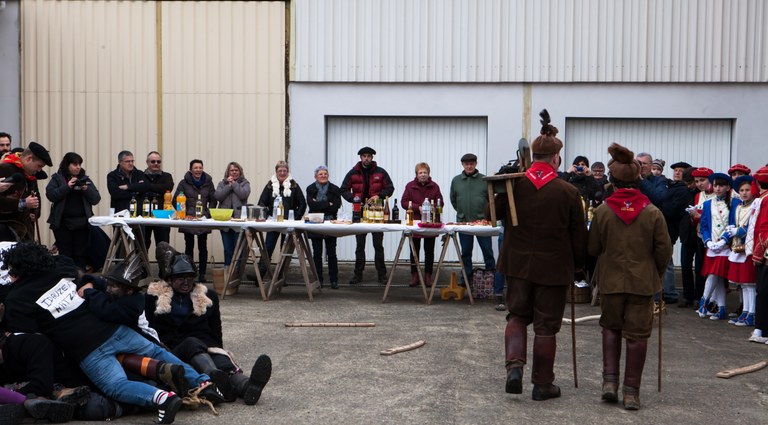
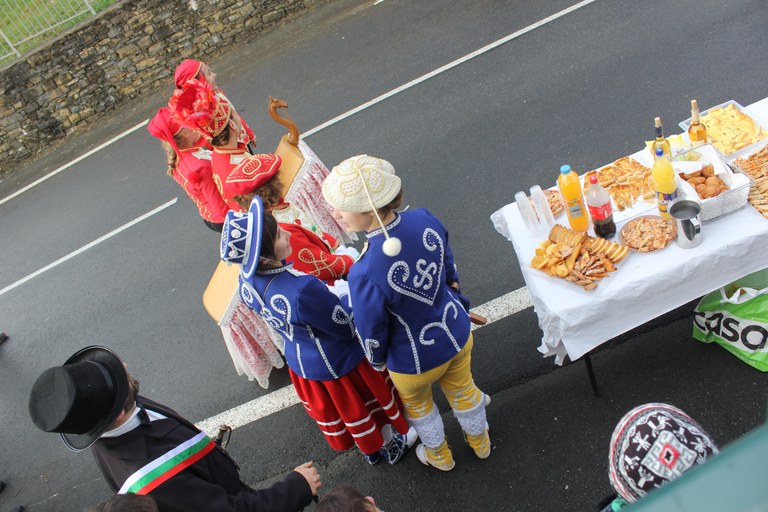
Arantza: white costumes
In the carnivals of Arantza, the earliest in most cases, the white costumes go out in exchange for the farmhouse and the food offer the baserritars dance, including the zortziko of Arantza.
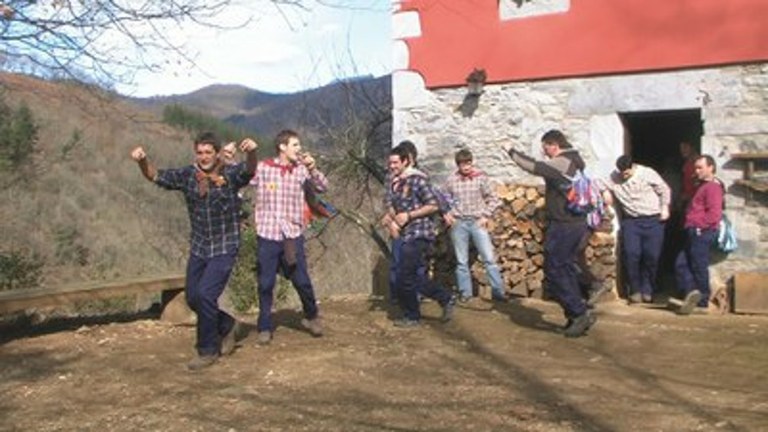
Andoain: axerias
Andoain's cottages are dedicated to skiing and dancing throughout the morning, dancing different axeri-dantza games.
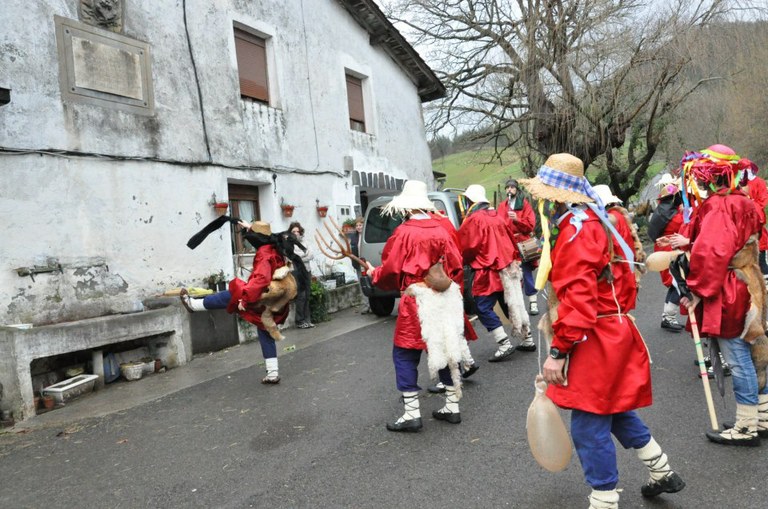
Lizartza: collection of pieces
Carnivals are held a week before Carnival Saturday in Lizartza. All weekend they dance at the station. Saturday all day in the cottages and Sunday morning in the street.
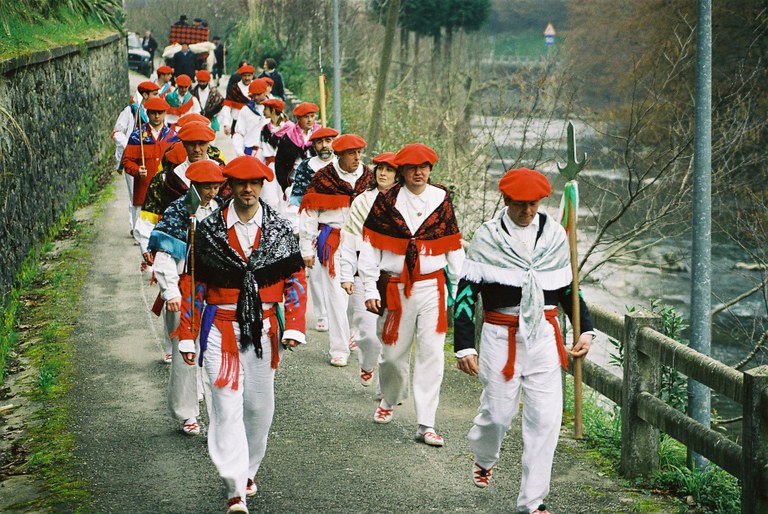
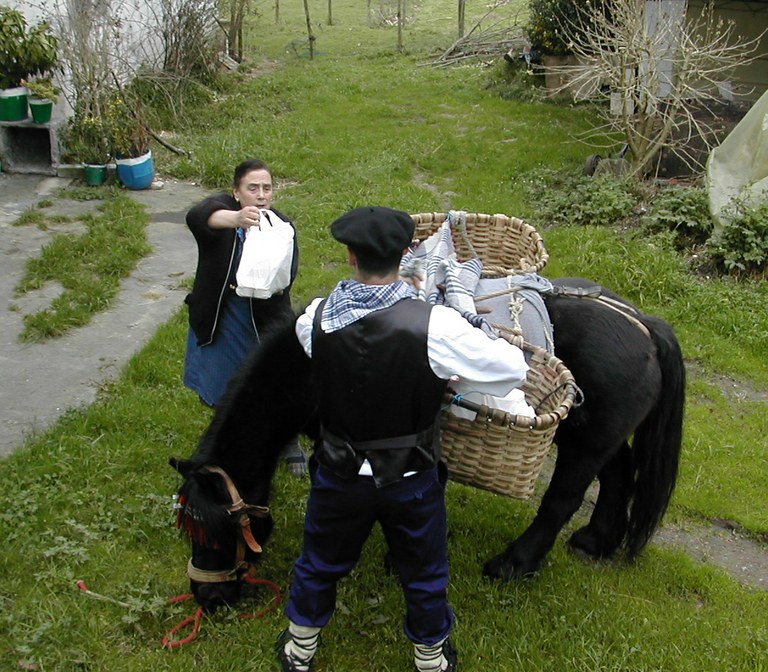
Igantzi: costumes
Major carnivals, but Igantzi's costumes are concentrated on Saturday and Sunday a week earlier. On Saturday the Txokos of the town and the neighborhoods of Berrizaun, Frain and Sarrola will dance. On Sunday morning the costumes will be directed to the houses and villages of the town.
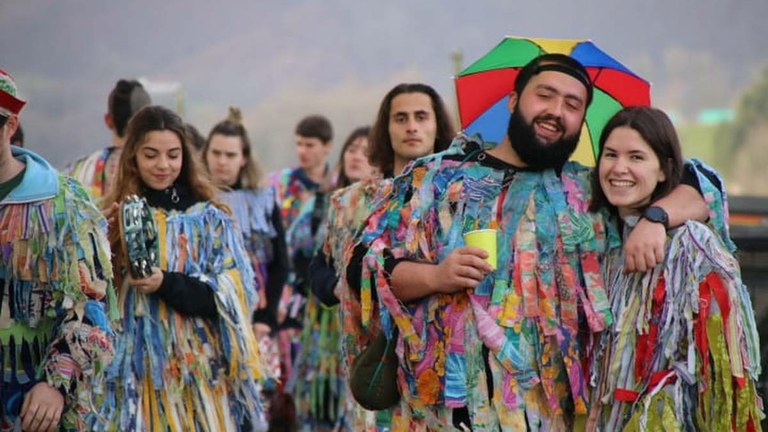
Arano: bugs
The bugs leave in Arano the Saturday before the older carnivals. Early in the morning they depart from the town square and go from farmhouse to farmhouse dancing fandango and arin-arin.
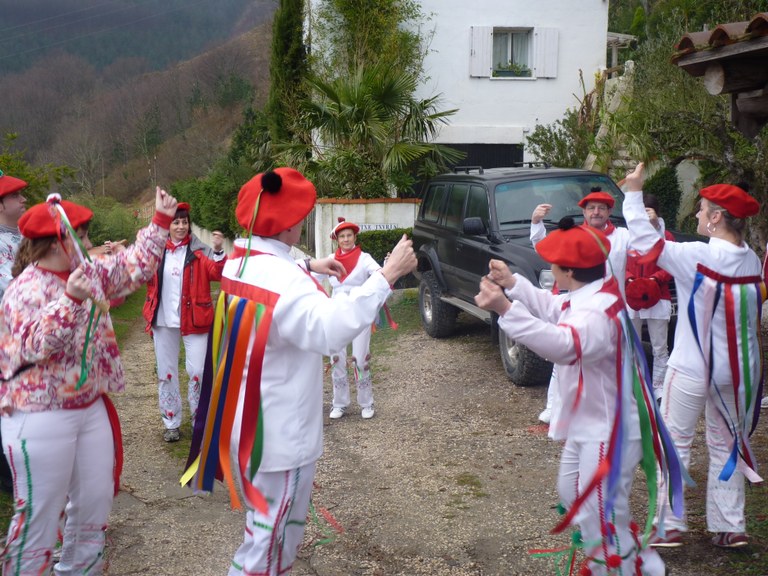
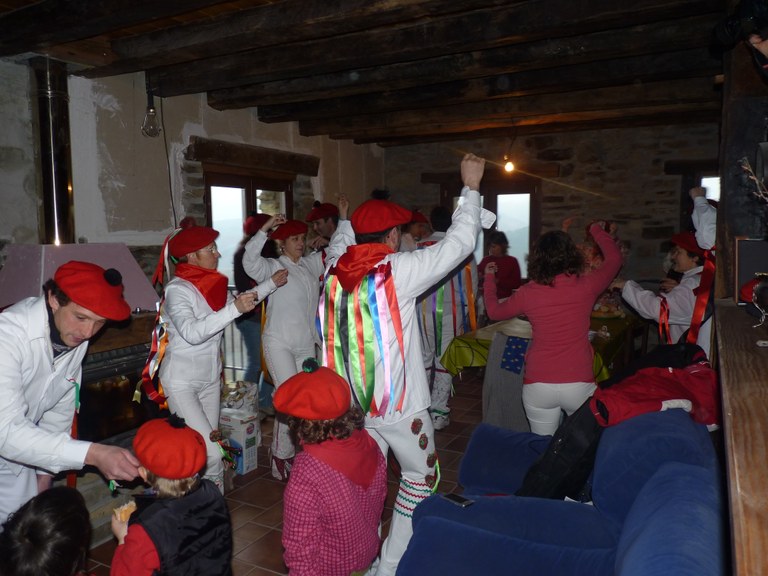
Oiartzun: inxixus and witches
Oiartzun is held a week before Carnival Saturday. Reclaiming the old custom, today Saturday morning, the group of junctures takes care of their houses and dances fandango and raft in front of each hamlet.
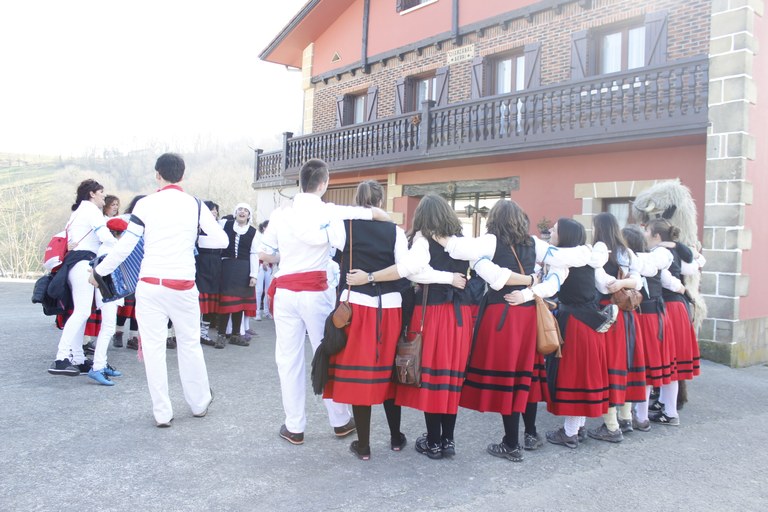
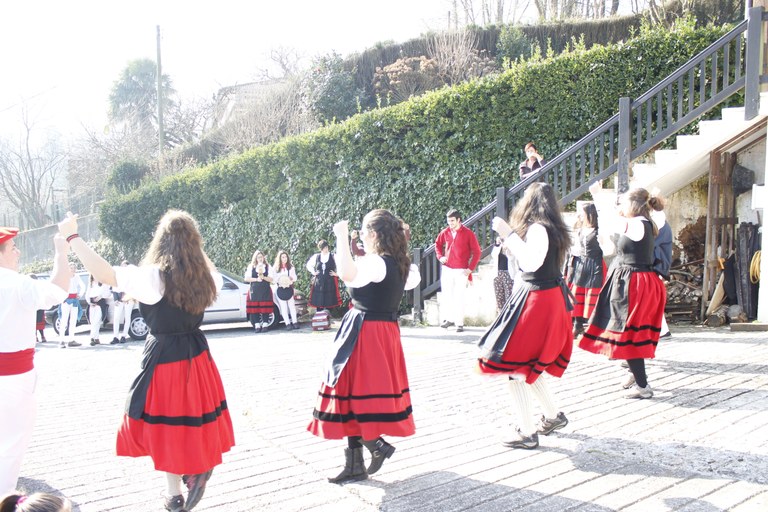
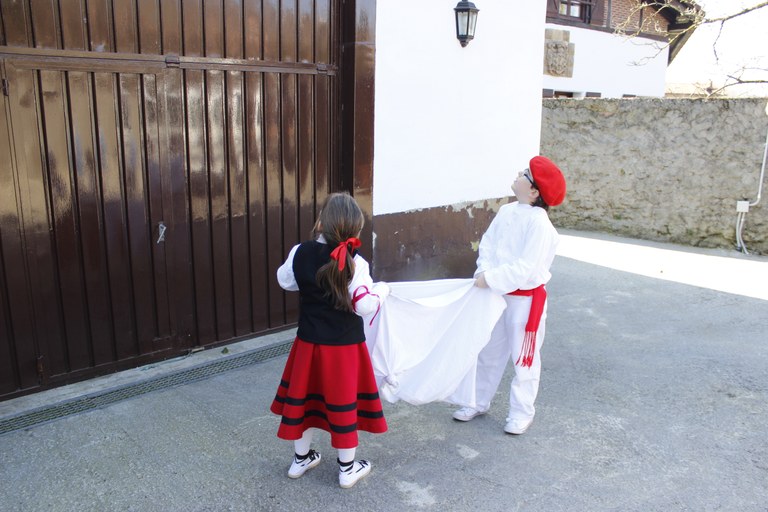
Eibar: coco coco coco
At the Eibar, the carnival is celebrated with coconut and coconut dances. Coconut scripts and coconut dancers dance from farmhouse to farmhouse, sing and begging from morning. To order coconut they use the song used in Eibar: "Kok moko, Saria bet moko, Gibel-gibel afari afari, Money in case I had pocket".
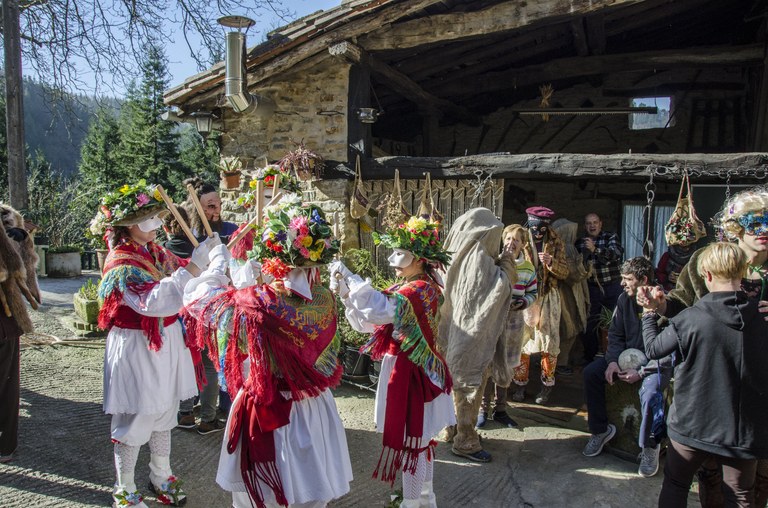
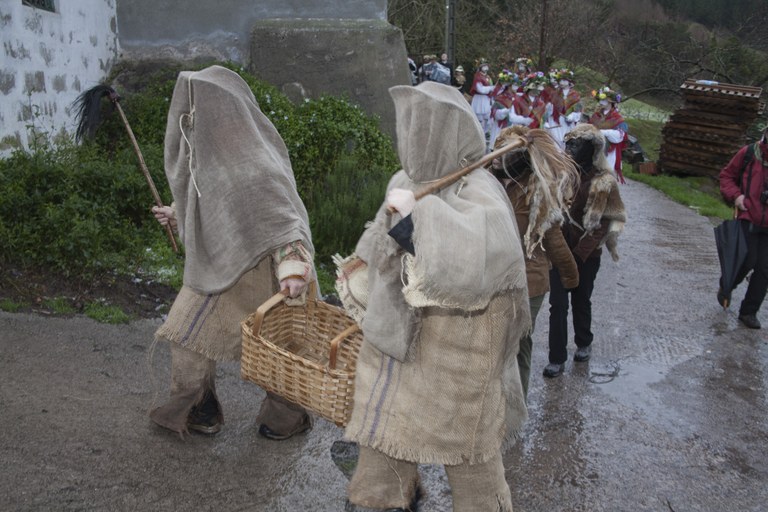
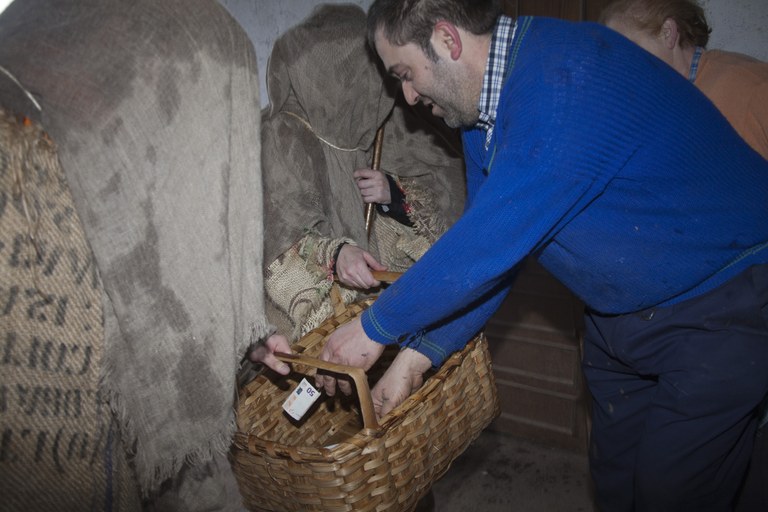
Bakaiku: shrimp
Carnival Saturday leaves the Camarras in Bakaiku. After eating together in local society, they dress up and leave the house transporting the plow and throwing dust.
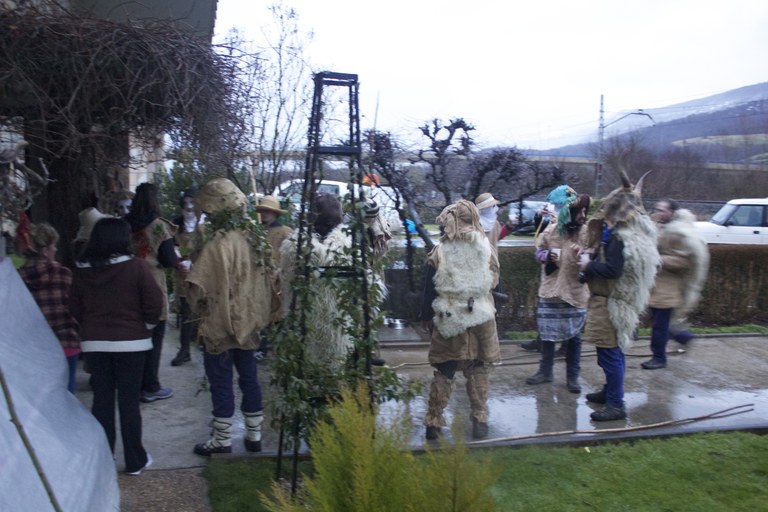
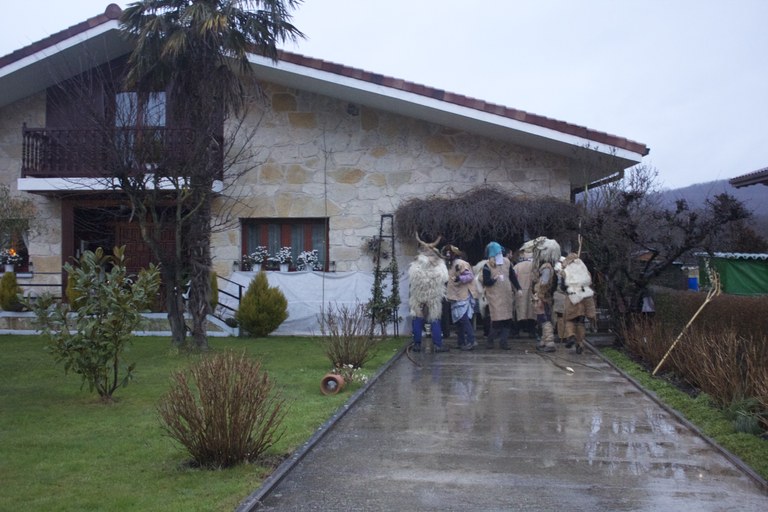
Behobia: eraikal dance group
On the eve of Zaldunita, around 9:00 in the morning, the members of the Eraikiz Dances Group leave their hometown. In all houses dantzaris dance fandango and arin-arin to receive the prize.
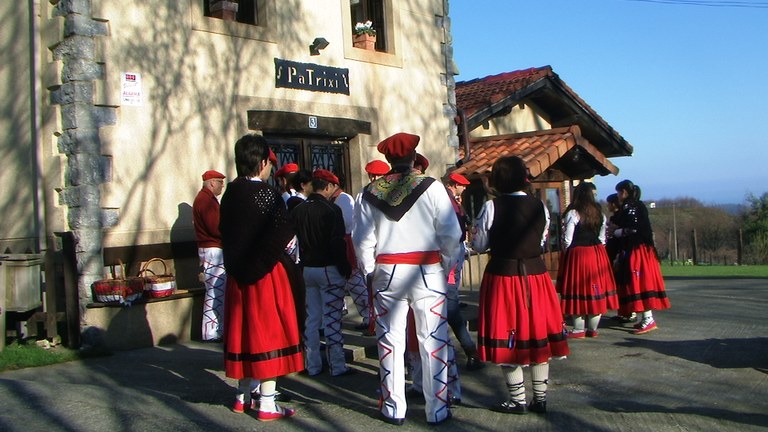
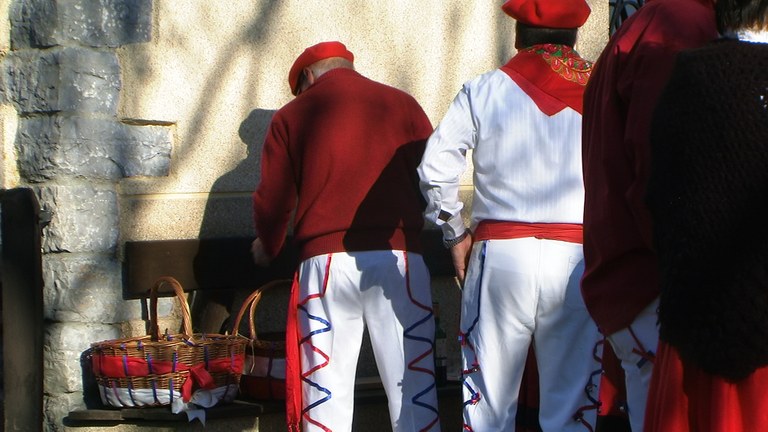
Hondarribia: meaka dance group
Members of the Meaka de Irun dance group meet on carnivals. On Saturday and Sunday morning in the Meaka district of Irun, young people and adults work as farmhouses, while on Saturday afternoon in Hondarribia, they run the station under Jaizkibel.
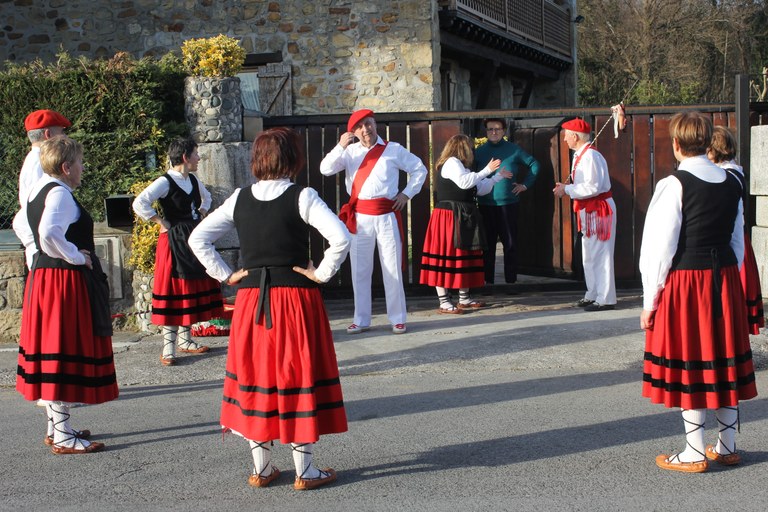
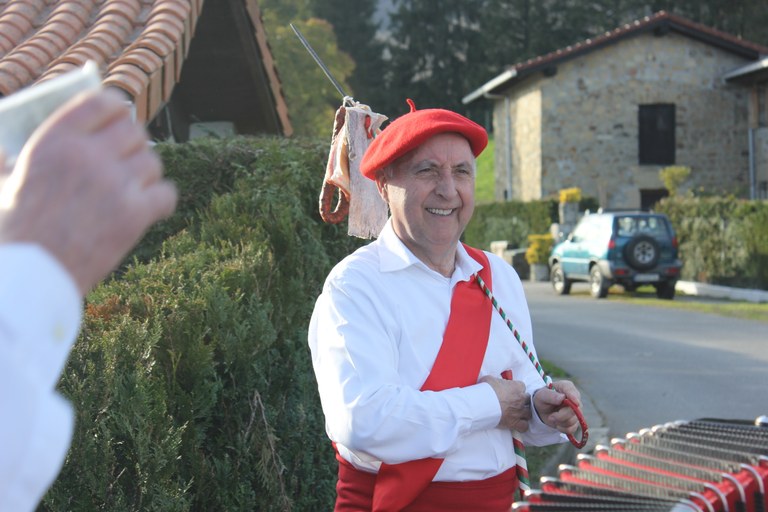
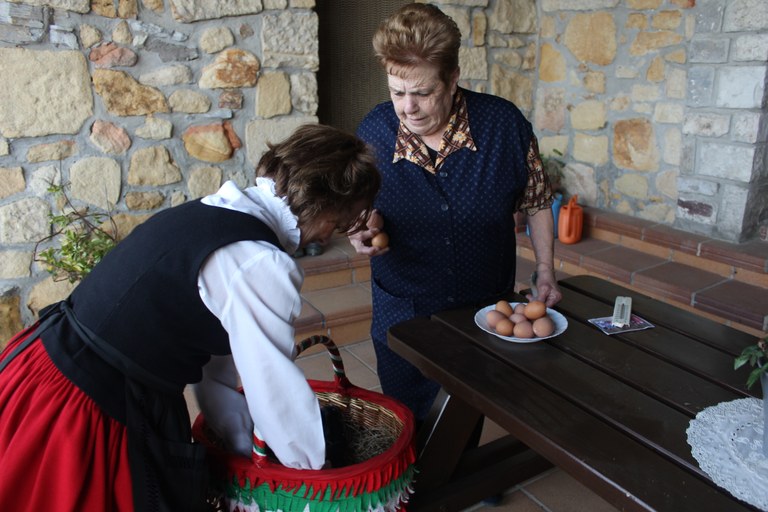
Abaltzisketa: txantxoak
Carnival Sundays or Zaldunita are the places where the txantxos of Abaltzisketa, the costume, the cestero and the accordionist come out when collecting pieces in the hamlets and in the village. At the doors of each house pass the broom and offer the paloteado of the txantxos.
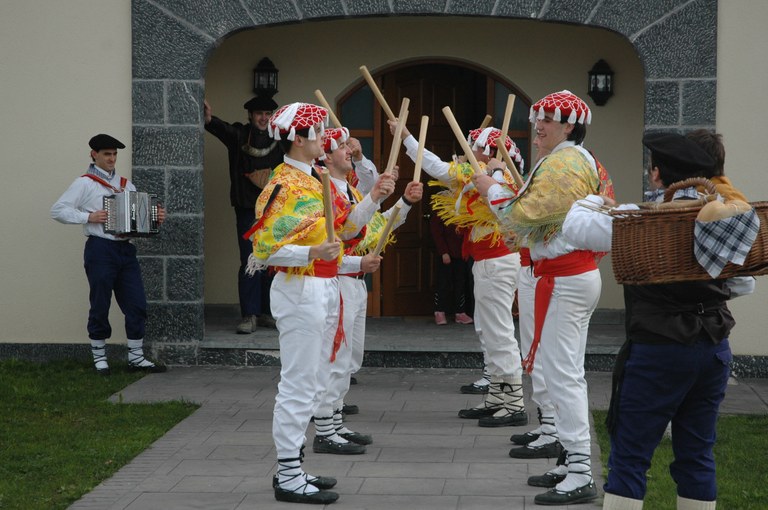
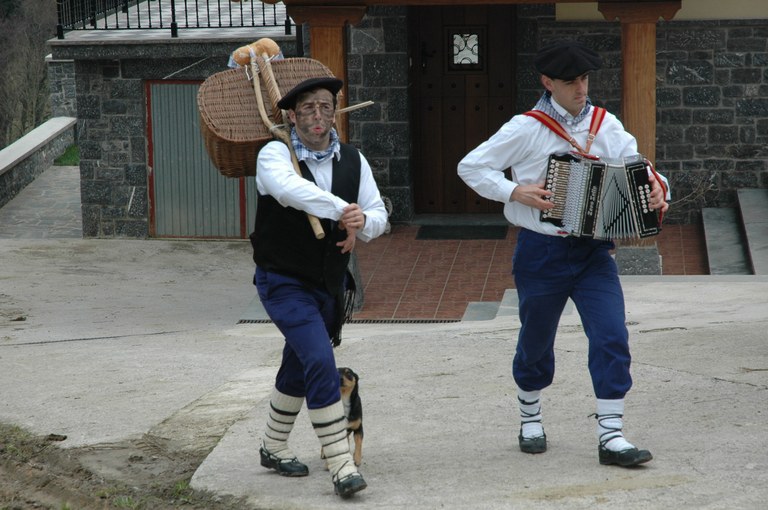
Amezketa: talai-dantzaris
Amezketa's watchtower dantzaris leave on Saturday and Carnival Sunday to ask. They work as farmhouses and at home in the portals with a dance of clubs called talai-dantza.
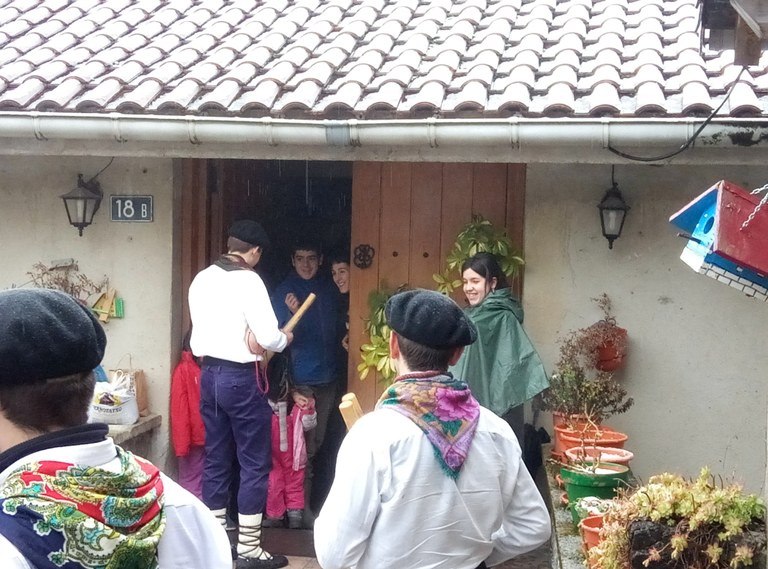
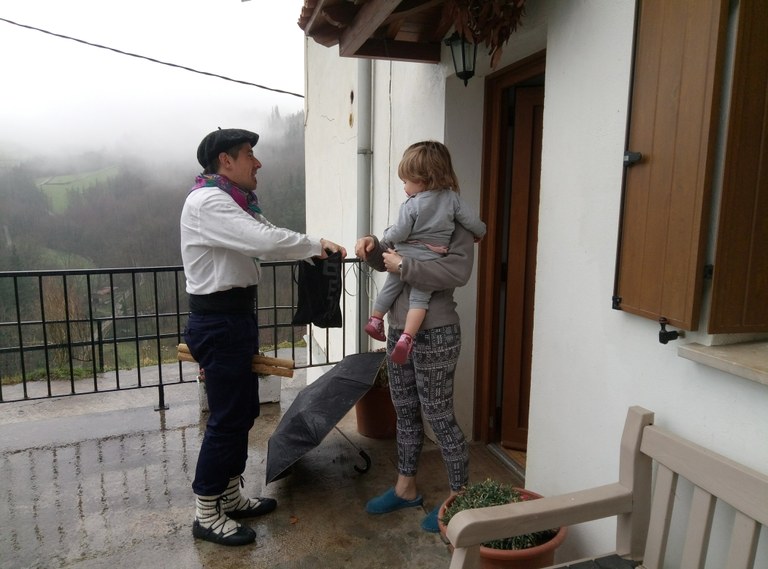
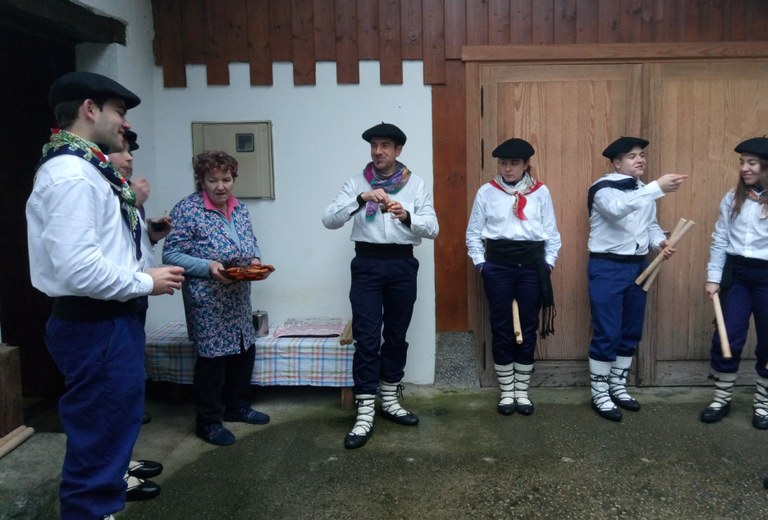
Ihabar: foals
Around 11:00 in the morning of Carnival Saturday, the young people dressed in baserritars do some time for the town. In the afternoon the foals will start at home. If whoever meets them does not want to receive a punishment blow, they will have to run away.
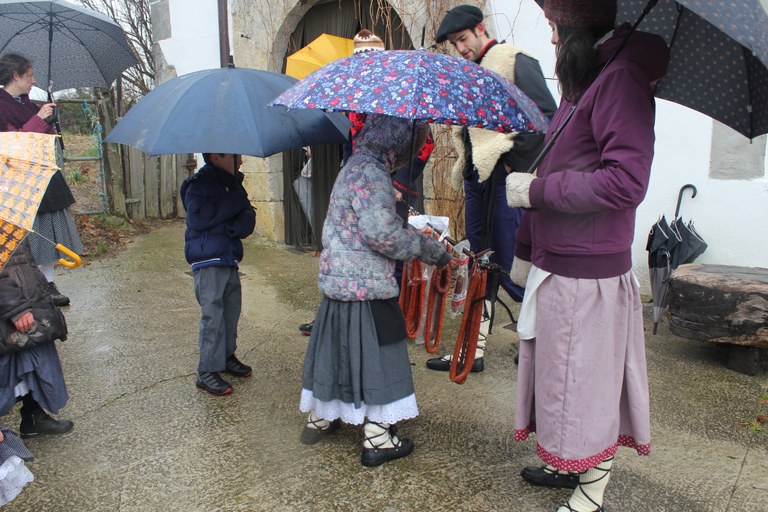
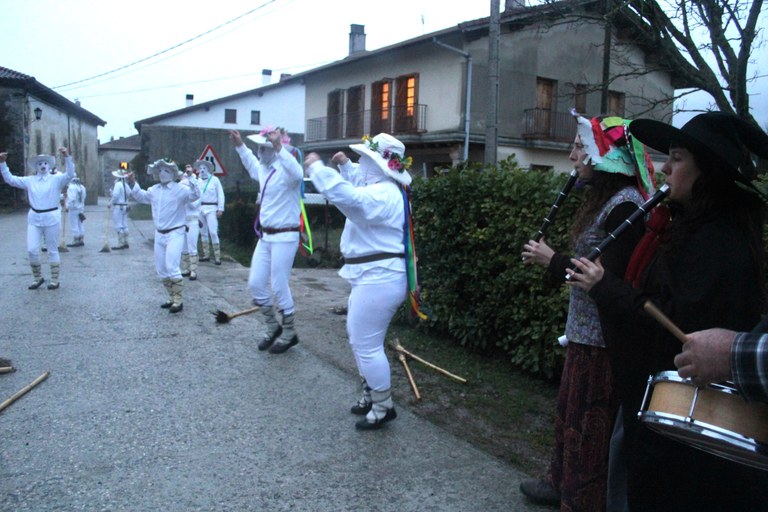
Lesaka: vomiting
On Carnival Sunday, the Goitarrak dancing from farmhouse to farmhouse and collecting pieces of eggs. They dance jotas in front of the cottages.
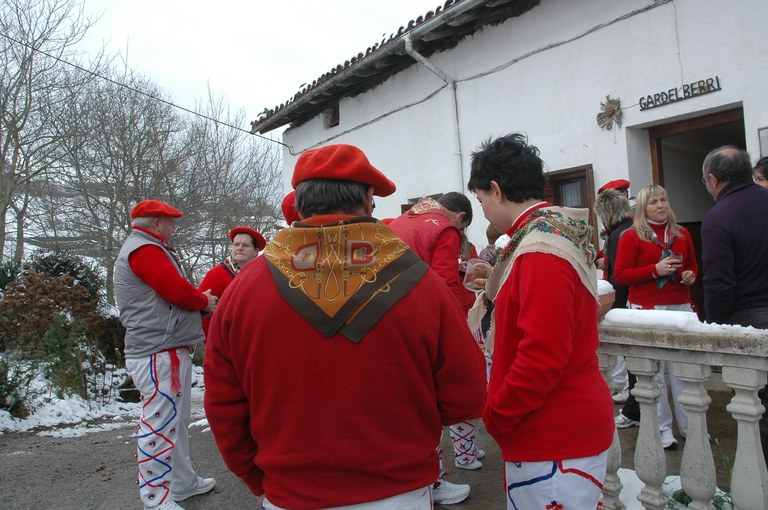
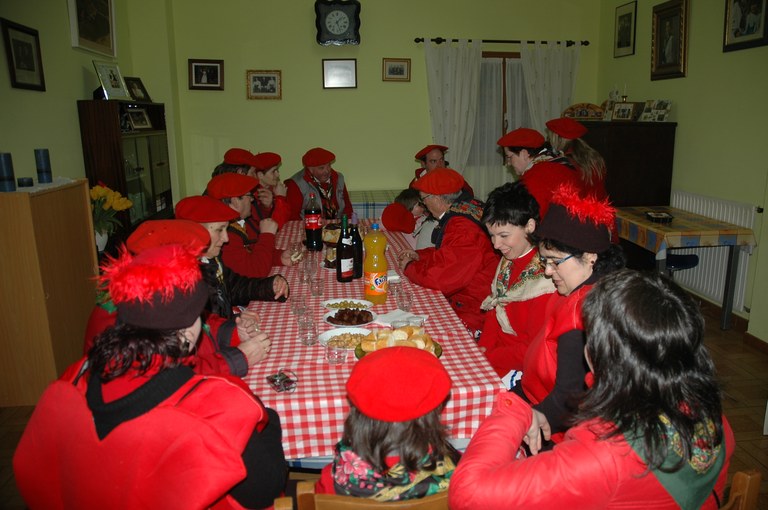
Bera: application for settlement
In the mornings, in Bera, a cincha egg is requested on Mondays. The crews dress their costumes and work as farmhouse in farmhouse. In front of all the hamlets "Zingar-reboztze, except for a swamp egg, etc." They sing and they get the prize that day.
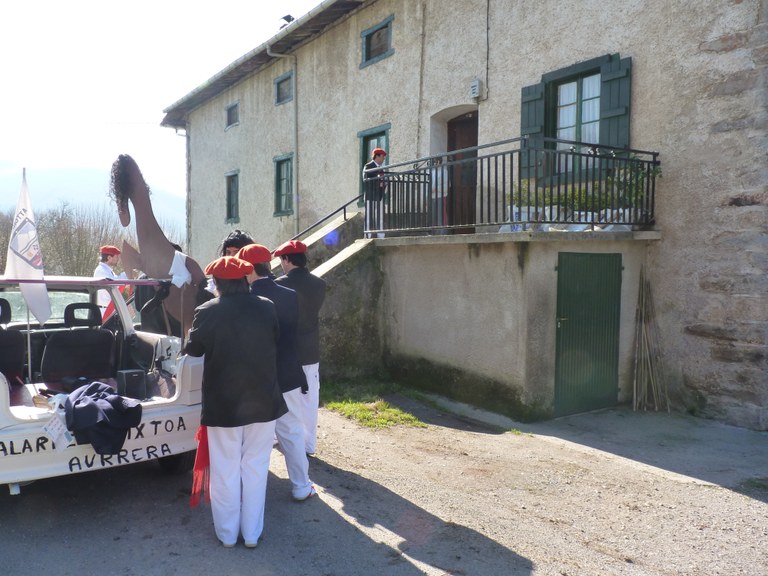
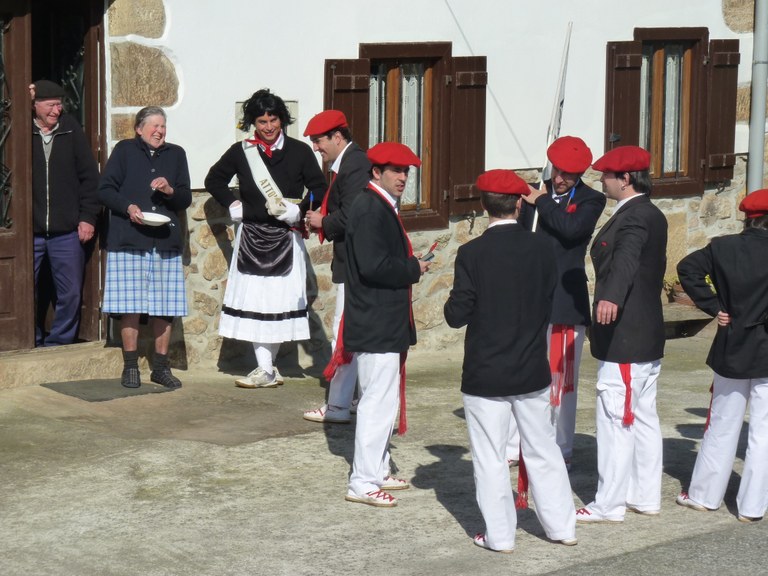
Lesaka: fraindarras in the application for eggs
The Fraindarras de Lesaka leave on Mondays and Tuesdays of Carnival by collecting chunks in the Frain district of Lesaka. The Fraind group consists of musicians, collecting eggs and money, and stirring the broom.
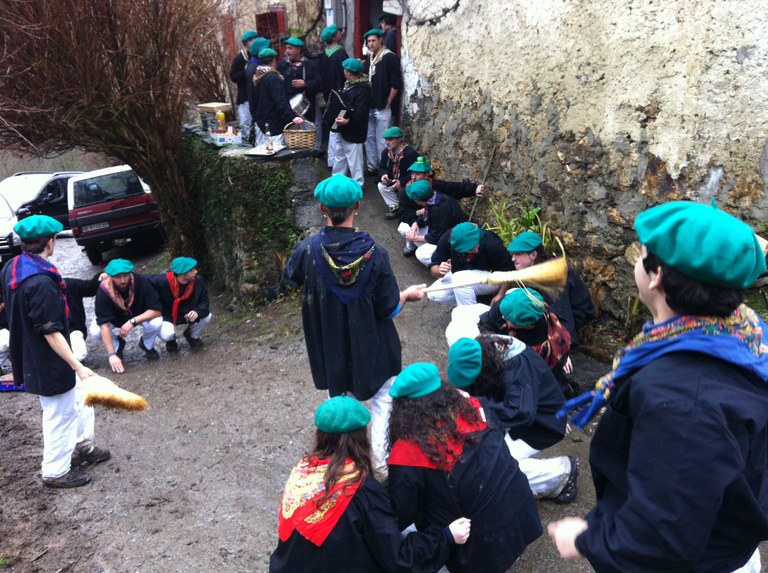
Goizueta: collection of pieces in casseroles
The costumes run through the hamlets throughout Monday's carnival day. On Tuesday morning, before the afternoon Zahagi-Dantzatras, they walk down the street asking.
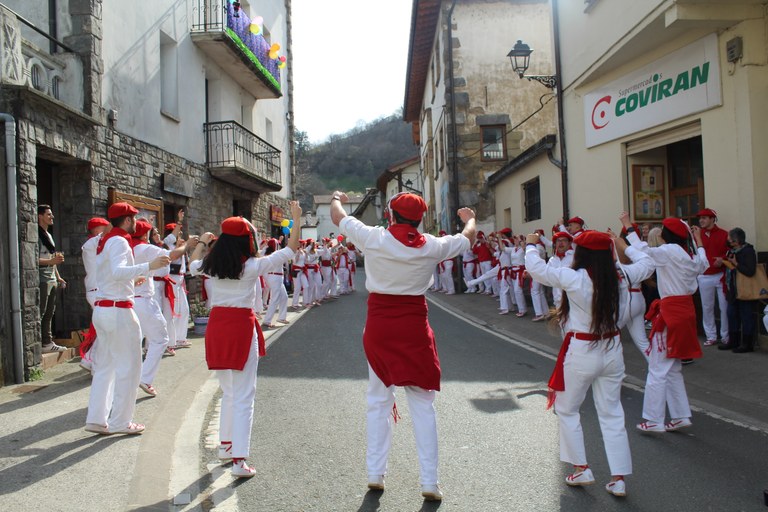
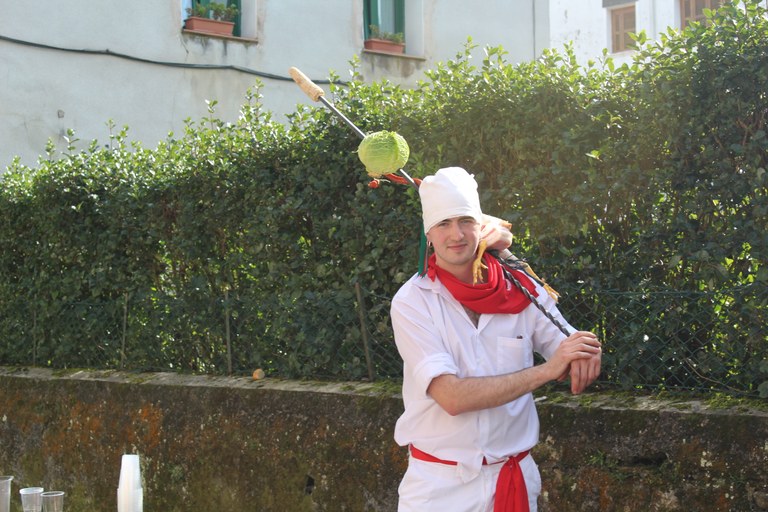
Erratzu: ladies
The Damas Parade is held in Erratzu on Tuesday. Ladies sing with street to street and portal bombs. On some portals they are welcomed with food and drink.
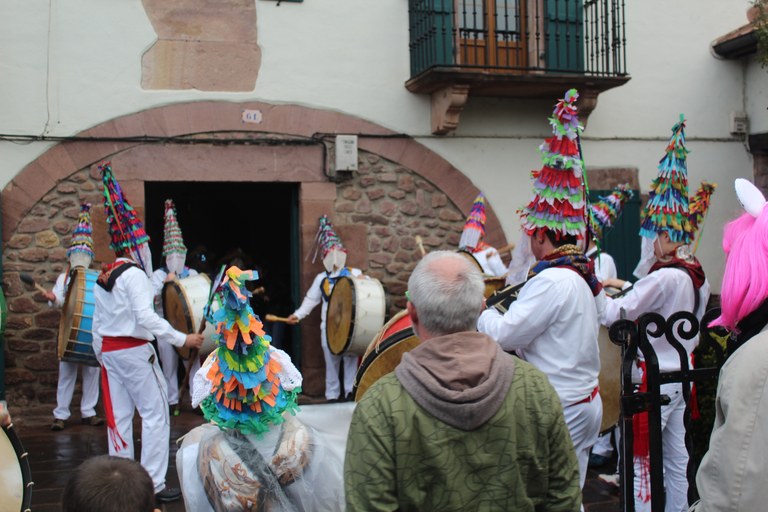
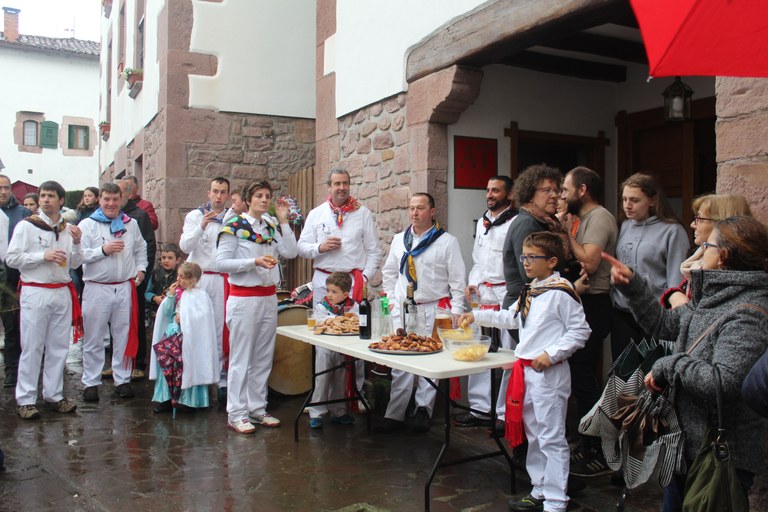
Behe bandako zutabea bezain erlojuaren aurka prestatzen ditut mozorroak, korrika, aztoratuta, zalantzaz, erretxin, estropezuka eta sarri arrakasta ez erabatekoarekin; adibidez, zutabe hau eta biharko mozorroa. Oraindik ez dakit bietako zein bukatuko dudan lehenago. Baina... [+]
Gizakunde (Inauteriak)
Noiz: otsailaren 15ean.
Non: Arizkun eta Erratzun. plazan.
------------------------------------------------
Amaitu dira inauteriak, sutan erre ditugu gaiztoak, gaizkiak, sardinak eta panpinak. Baina xomorroak esnatu dira eta badator... [+]
Lantzeko inauteri txikien kalejira ikusle guztien begietara urtero modukoa izan zen. Txatxoak, Zaldiko, Ziripot eta Miel Otxin herriko ostatuko ganbaratik jaitsi eta herritik barna bira egin zuten txistularien laguntzarekin. Askok, ordea, ez zekiten une historiko bat bizitzen... [+]
Martxoaren 2an igandea Iruinkokoak berriz ere Iruñeko karrikak hartu ditu.
We are at the gates of carnivals and carnivals. Like every year, immersed in this seasonal era that remains physically cyclical. Although it's still winter, it's when we start to smell its end.
Debates and decisions on this year's costume begin in the whatsapp groups of the crews... [+]
Urtero legez Euskal Herria Plaza eskatu du Tolosako Txosna Batzordeak, baina salatu duenez, udalak aldebakarrez erabaki du txosna gunea Plaza Berrira lekualdatzea.



